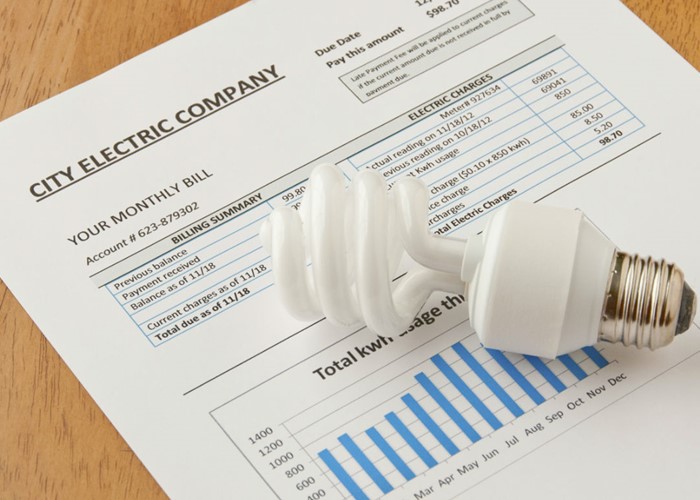Energy tariffs to avoid!

With energy bills continuing to rise, it's crucial that you don't end up lumbered with a tariff that will cost you a fortune. Make sure you avoid these stinkers!
Some energy tariffs have nasty catches that could trap you into paying more or leave you facing terrible hidden exit costs.
The direct tariff (e.g. with Southern Electric)
Even as people and consumer groups adapt to energy providers' tactics, they always manage to stay one step ahead. If you remember Which?'s Big Switch campaign last year, the energy company that won tens of thousands of new customers didn't even offer the lowest price available.
Energy companies have to compete for the modern customer, who wants to switch every year or so for the cheapest price, but they try to do so without accidentally making the dinosaurs who never switch aware of those much cheaper prices.
That's why you have energy companies that don't advertise their cheapest tariffs on their websites. Anyone who doesn't use comparison tools and goes direct – perhaps thinking it's cheaper – might actually pay more.
Southern Electric, for example, advertises the Discounted Energy April 2015 tariff on its own website. This is a piddling 2% cheaper than its standard rates. A dinosaur might be chuffed with the saving, but go to a comparison site like Lovemoney and you'll find Southern Electric is offering a tariff that's 10% cheaper than its standard rates. This tariff is only available through comparison sites, not direct.
The same goes for Scottish Hydro and SWALEC.
Tariffs with all or nothing discounts (e.g. npower)
npower's cheapest tariff is the Energy Online August 2014. Like most of npower's tariffs, it comes with a dual-fuel discount of £100 per year. If you stick with npower after August 2014, you're likely to be moved to a tariff with the same discount.
This is a really sneaky trick: each month, part of the annual discount is applied. However, when you quit npower, the discount for the whole year will be cancelled, even the bit that has been applied already. Your final bill, therefore, will probably be higher than you expected, and Energy Online August 2014 is then likely to be more expensive than you anticipated when you compared prices.
Worst-case scenario, you leave around 11 months into a year from the anniversary of your switch. You'll have earned almost the whole year's discount – almost £100 – but you'll have to pay the whole lot back.
This could even be a problem with one of npower's fixed tariffs; if you move home and the new address is not already powered by npower, you'll lose the discount. Even if npower is at the new address, it might not be the cheapest there, so you face the choice of giving up the discount or staying with a more expensive provider.
As far as I know, npower is the only supplier to take back discount that you have already earned. All the others that pay a dual-fuel or other discount let you keep it.
The next tariff (e.g. most of the big six!)
You may have read that providers are to tell you the cheapest tariff they have that is available to you on your statements, which should be useful when it comes to the end of your current deal, or another good point to switch. However, as Co-operative Energy has pointed out, there are enough holes in this to sink an aircraft carrier.
Indeed, the big six energy suppliers might inadvertently be given new ammunition to make you believe you're on, or being offered, the cheapest tariff there is, when you're actually paying far more than the cheapest available.
If you've been with a big six supplier for a while on the same energy tariff, or your supplier has kindly switched you to a new “deal” for your next tariff, it's a good bet that the tariff you're now on charges over the odds, no matter what the supplier tells you.
Now you know the ones to avoid, it's time to find the bext energy tariffs. So head over to Lovemoney's gas and electricity engine to see which tariffs best suit your use!
More on gas and electricity:
The longest fixed rate energy tariff EVER!
How to avoid First Utility’s 18.6% energy price rise
Spark Energy referred to Ofgem after surge in complaints
Energy bills could overtake mortgage repayments by 2025
Why paying your energy bills by direct debit may not prevent bill shock
Comments
Be the first to comment
Do you want to comment on this article? You need to be signed in for this feature